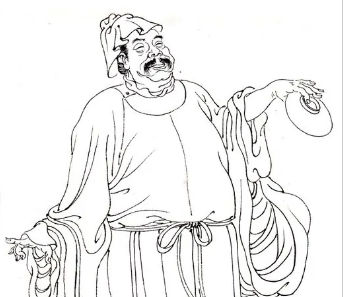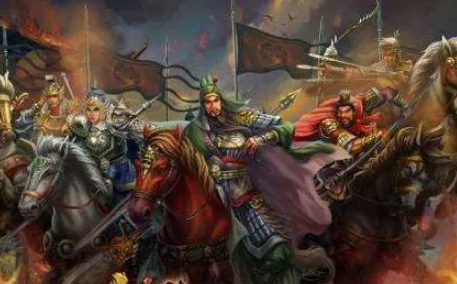In the history of the Three Kingdoms, a statement by Liu Shan, the later emperor of the Shu Han dynasty, "Zheng Gui Ge Shi Ji Ze Guo Ren" sparked numerous controversies. The literal meaning of this statement is to entrust political affairs to Zhu Geliang (also known as Kongming and Wolong), while Liu Shan himself takes charge of ritualistic affairs such as sacrifices. To deeply understand the underlying meaning of this statement and its relationship with Zhu Geliang, we need to analyze it from the following aspects.

Firstly, from the perspective of power distribution, "Zheng Gui Ge Shi" means Liu Shan's high trust and authorization of Zhu Geliang. After Liu Bei's death, Liu Shan ascended the throne, but due to his young age and lack of experience, he almost entirely delegated national affairs to the chancellor Zhu Geliang. Such delegation of power was not uncommon at that time, especially when a young emperor ascended the throne. However, Liu Shan's action also demonstrated his extreme dependence and trust in Zhu Geliang.
Secondly, "Ji Ze Guo Ren" indicates that Liu Shan still retained some important responsibilities as a monarch. In feudal society, sacrificing to heaven and ancestors was an important ritual activity of the country, usually presided over by the king. Liu Shan's emphasis on his responsibilities in this area may be to maintain his image and dignity as the leader of the country, or to maintain symbolic control over divine power.
Upon further interpretation of this statement, we can discover the complex relationship between Liu Shan and Zhu Geliang. On the one hand, Liu Shan's reuse of Zhu Geliang undoubtedly demonstrates his wisdom and breadth of mind. He recognized his limitations and was willing to entrust national affairs to a more capable minister. On the other hand, this division of labor may also reflect Liu Shan's concern about his own status and his precaution against the threat posed by Zhu Geliang's excessive power.
In actual political operations, the statement "Zheng Gui Ge Shi Ji Ze Guo Ren" also reflects Liu Shan's restriction on Zhu Geliang. By publicly declaring this division of labor, Liu Shan has, to some extent, limited Zhu Geliang's power scope, preventing him from crossing the line into areas reserved for the monarch, such as sacrifices. This is not only a political strategy but also a check and balance on Zhu Geliang's potential influence.
In summary, the statement "Zheng Gui Ge Shi Ji Ze Guo Ren" not only reveals Liu Shan's approach to handling state affairs but also reflects the subtle relationship between him and Zhu Geliang. With Liu Shan's authorization, Zhu Geliang was able to exert his talents and assist the Shu Han dynasty, while Liu Shan maintained his monarchical status by reserving responsibilities such as sacrifices. This balance of power between the emperor and his minister is a distinctive feature of political life in the Shu Han dynasty during the Three Kingdoms period.
Disclaimer: The above content is sourced from the internet and the copyright belongs to the original author. If there is any infringement of your original copyright, please inform us and we will delete the relevant content as soon as possible.






























